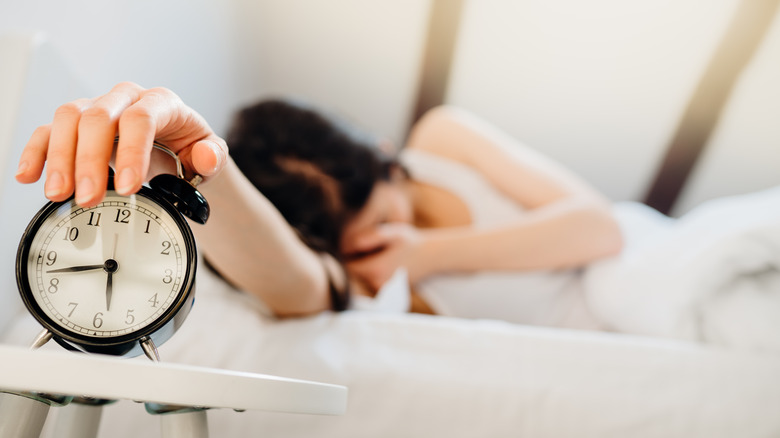
The Hidden Life of the Snooze Button: Insights from New Research on Your Morning Alarm Behaviors
Each day, countless individuals confront a deceptively straightforward decision: rise from bed or press the snooze button for a few more moments of slumber. Although it might appear to be a harmless luxury, snoozing is a widespread trend, and fresh research indicates it may have a more significant impact on our sleep quality than we previously realized.
A thorough new investigation by scientists at Mass General Brigham has examined over 3 million sleep cycles from more than 21,000 global smartphone users through the Sleep Cycle app. The results, published in the journal Scientific Reports, illuminate who engages with the snooze button, when they do so, and what implications this has for their overall sleep health.
Snoozing on a Global Scale: Who Procrastinates in the Morning?
The findings reveal that snoozing is not merely common; it’s a norm. Over 55% of wake-up instances involved hitting snooze, with users averaging around 2.4 presses of the button each morning. This amounts to roughly 11 minutes spent in bed after the initial alarm.
Distinct patterns emerged among the types of users most inclined to snooze:
– Chronic Snoozers: 45% of participants pressed the snooze button over 80% of mornings, accumulating about 20 minutes of snooze time each day.
– Gender Variations: On average, women snoozed longer than men (11.5 vs. 10.2 minutes).
– International Comparison: People in Sweden, Germany, and the United States were the most frequent snoozers, while those in Japan and Australia were less inclined to use the snooze function.
– Weekday Influence: Unsurprisingly, snoozing peaked during the workweek, particularly from Monday to Friday, when morning responsibilities are most prevalent.
Interestingly, the study also noted that individuals who enjoy longer sleep—10 hours or more—were more prone to pressing snooze repeatedly compared to those who had six hours of sleep. This contradicts earlier beliefs that those lacking sleep would be the primary snoozers. Researchers propose this may indicate that short sleepers are governed by immediate demands that compel them to rise promptly—such as strict job timings or caregiving duties.
What Occurs When You Press Snooze?
The snooze button has often been scrutinized by sleep experts, and this research sheds light on the reasons why. Although the allure of “just a few more minutes” can be enticing, these additional moments usually consist of low-quality, fragmented sleep.
Dr. Rebecca Robbins, the study’s principal author and a sleep scientist at Brigham and Women’s Hospital’s Division of Sleep and Circadian Disorders, states, “The snooze alarm disrupts some of the most crucial phases of sleep—particularly rapid eye movement (REM) sleep, which is essential for mood regulation, memory, and overall cognitive function.”
Instead of slipping back into restful sleep between alarms, snoozers typically experience only light, interrupted sleep that provides minimal restorative benefit. Over time, this can lead to erratic sleep patterns and groggier mornings—sometimes referred to as “sleep inertia.”
The Accumulated Cost of Snoozing
For frequent snoozers, the implications can accumulate significantly. The research estimates that heavy snoozers—those who spend roughly 20 minutes each morning in snooze mode—lose around 121 hours of quality sleep annually. This equates to five complete days or a six-hour night of missed rest every month.
Given these insights, specialists propose that snoozing could be a subtle yet persistent disruptor of sleep health—an issue that deserves increased public awareness.
Tips for an Improved Wake-Up
For individuals looking to eliminate the snooze habit, Dr. Robbins proposes a practical strategy:
“The most effective approach is to set your alarm for the latest possible time you need to rise—and then commit to getting up when it goes off.”
This approach encourages a more consistent sleep routine and minimizes disruptions during the morning hours. Robbins also highlights the significance of establishing a calming pre-sleep routine and ensuring sufficient nighttime sleep, so you wake up feeling refreshed without heavy dependence on snoozing.
You Can Restrain Yourself from Snoozing
Like any behavior, snoozing can be altered through conscious practices and environmental signals. Here are some suggestions:
– Position Your Alarm Across the Room: Physically getting out of bed to turn off the alarm boosts the likelihood of staying up.
– Utilize Gradual Wake-Up Alarms: Alarm clocks that mimic sunrise or slowly increase in volume gently awaken the body, mitigating abruptness and sleepiness.
– Set a Single Realistic Alarm: Program your alarm for when you genuinely need to rise—avoid relying on “buffer alarms.”
– Create a Sleep Schedule: Retire to bed at the same time each night and strive for